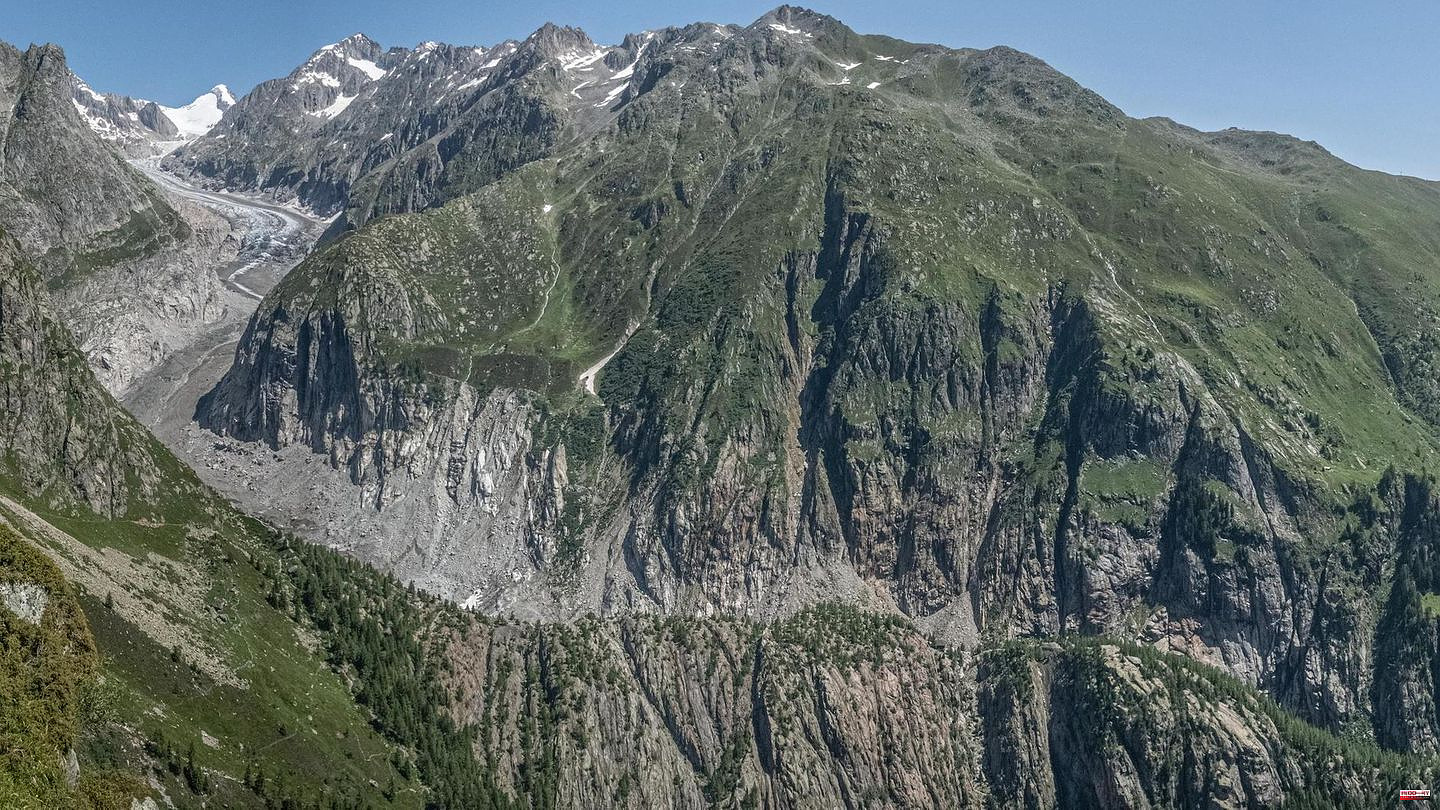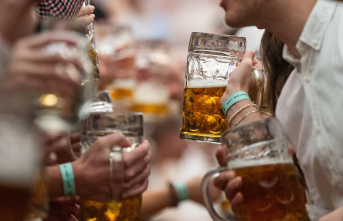Mr. Farinotti, which glacier did you visit last? The Rhone Glacier.
And how is he? Not good at all - like all other glaciers in Switzerland, yes, in the entire Alps and worldwide.
What do the glaciers suffer most from? The reasons have to do with the changing climate. When less snow falls in winter, less ice forms. At the same time, the high temperatures in summer ensure that more melts. Both come together this year. We had a dry winter and a hot summer.
In the past 85 years, Swiss glaciers have lost half their volume. They're melting faster than expected. How worrying is this development? Glaciers have a few important functions. They serve as reservoirs for water and they usually provide water when we need it most. When it's dry and hot in summer, the ice melts, resulting in more water in the valley. However, when the glaciers shrink in this way, they gradually lose their function as a water reservoir. We assume that we are currently on a "peak water".
You have to explain that. That means maximum drainage. When it was colder a few decades ago, less ice melted and less water reached the valley. Now more is melting and we have more water. But that will change: if the glaciers get smaller and smaller, less water will reach the valley because less ice can melt.
How serious are the consequences? Over the year it won't make much of a difference as the amount of precipitation won't change much. Depending on how you calculate it, it will probably drop by five or ten percent. But certain areas will feel it. I'm thinking of the Rhone Valley in Valais, the driest area of Switzerland. High mountains surround the valley and keep the precipitation away from it. That is why people are dependent on the meltwater.
The Alps and their glaciers attract hikers and mountaineers. In Italy, a glacier collapse this summer claimed eleven lives. Do we have to reckon with these dangers? Yes, it has always been like this. Sometimes we have to be more careful when we are in the mountains. The permafrost is melting due to rising temperatures. The slopes can lose stability as a result, boulders can break off. The glaciers are also changing: the ice is getting darker and darker. This can also be observed on the Rhone Glacier: the tongue of the glacier is now as good as black. The ice is dirty.
Do measures such as covering help to stop or at least slow down the melting of glaciers? On a local scale, these measures are very efficient: they can reduce melting by up to 60 percent. However, such measures only combat the symptom, that is, the melt, and not the cause. In addition, the measures are not scalable: Covering an entire glacier would be neither feasible nor affordable nor sensible.
They say all glaciers are bad. Are there any that are doing a little better than others? The larger a glacier, the longer it will last. In the Alps, this is the Great Aletsch Glacier. And altitude matters. Glaciers at high altitudes, such as Mont Blanc or the Monte Rosa massif, will be able to last longer because they are generally exposed to lower temperatures. But how things will look at the end of the century also depends on how we humans behave – above all, how many greenhouse gases we emit.
Which behavior helps the glaciers? If we stick to the Paris Agreement's target of keeping the global warming below two degrees compared to the pre-industrial age, we can preserve about 40 percent of today's glacier mass by the end of the century. That would be the best case, but it also obviously means that 60 percent of today's glaciers would disappear. According to very pessimistic calculations, almost all glaciers in the Alps will have disappeared by the end of this century.
How optimistic are you personally? Not much. From a global perspective, however, the much greater problem is not the melting of the Alpine glaciers, but rather the melting of ice in the Arctic and Antarctic regions. If huge expanses of ice melt here, it will affect sea levels, which in turn will affect the habitats of millions of people around the world. This is definitely a problem that causes concern.
This summer there were repeated fatal accidents in the Alps. If you are drawn to hiking in the mountains, you should pay attention to a number of things. Read here what tips the experts give.












